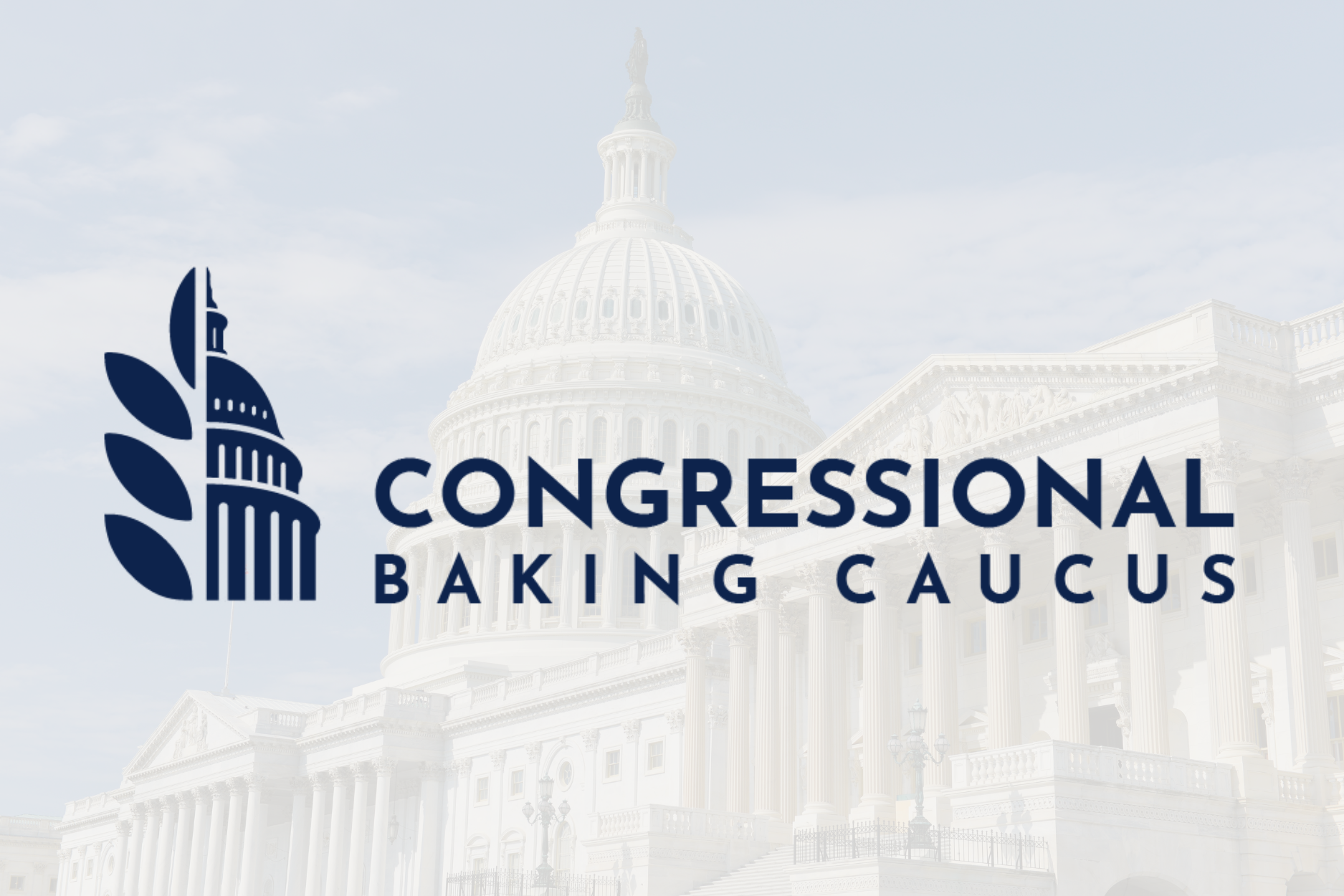ABA’s policy priorities include FDA’s Nutrition Facts Label Modernization, Nutrition Innovation Strategy
The American Bakers Association (ABA) is closely monitoring federal and state policies including both legislation and key regulations in 2019 that impact the baking industry.
The ABA Government Relations team highlighted policy priorities for the year during the IBIEducate session “Effective Policy for Successful Business: From Floor Time to the Bottom Line” at the recent 2019 IBIE in Las Vegas.
Nutrition Facts Label Modernization
Top of mind for the ABA in 2019 is the FDA’s Nutrition Facts Label Modernization.
“What the ABA has done in this arena is to educate and really be the voice of the bakers (to the FDA) and really think through what’s applicable and what solutions will work for the industry,” said Lee Sanders, Sr. Vice President of Government Relations & Public Relations and Corporate Secretary of the ABA.
Key revisions include:
- Line for added sugars within the percentage of Daily Value.
- Modernized format to highlight total calories and serving size.
- Redefining dietary fiber and specified substances meeting the new definition (now close to 28 fiber sources).
“The Agencydidn’t give the ABA and other food much time to comply with a number of complex issues given that the specifics were parceled out throughout the process rather than in one tidy package in the fnial rule,” said Sanders, “so the Agency agreed to a compliance extension to Jan. 1, 2020, to accommodate all the changes that have to be made.
“We are grateful for the additional implementation time so that we can efficiently provide clear and concise information for consumers,” Sanders concluded.
Nutrition Innovation Strategy
The ABA continues to provide input on the FDA’s Nutrition Innovation Strategy, helping to redefine the definition of “healthy” in support of the FDA’s goal of reducing preventable death and disease related to poor nutrition.
Three items are moving forward quickly, according to Sanders: The Healthy Definition, establishment of a Healthy Icon, and standard of identity modernization; action on all are expected by year’s end.
A public meeting planned in Washington, D.C., on Sept. 27, as well as a pubic comment period that concludes in November provided another opportunity for ABA to weigh in on standards of identity modernization.
Down the road, Sanders expects to see health claim and nutrient content claims also modernized. She said also expects an effort to modernize ingredient listings, as “some have asked for there to be groupings of ingredients in a different way than it occurs now.”
USDA’s Bioengineered Food Disclosure Standard
Rasma Zvaners, ABA Vice President of Regulatory & Technical Services, said the USDA’s Bioengineered Food Disclosure Standard has been on ABA’s radar for some time.
Those regulated by BE disclosure standards are food manufacturers, importers, and retailers who package and label food for retail sale or sell bulk food items. Not included are restaurants or similar retail food establishments and very small food manufacturers.
Exemptions allow each ingredient to contain up to 5 percent of a BE substance, as long as it is inadvertent or technically unavoidable. Any intentional use of a BE substance or ingredient requires disclosure.
The definition of BE food also excludes foods where the modified genetic material is not detectable through a validated testing process. If a food is on the USDA’s BE foods list and does not include disclosure, Zvaners noted that the burden is on the food manufacturer to maintain proper records to show that the modified genetic material can’t be detected.
Disclosure must be in the form of text, a symbol, an electronic or digital link (QR code acceptable), or a text message or phone number/URL (for small/very small packages or small food manufacturer).
Compliance is set for 2022. The ABA has a one-pager and FAQs available for members.
Food Safety Modernization Act
The ABA continues to closely monitor implementation of the FDA’s Food Safety Modernization Act (FSMA), which shifts the focus from response to prevention of foodborne illness.
To date, FDA has been taking an “educate while they regulate approach” for purposes of the regulatory obligations under FSMA. The FDA is conducting two types of inspections: Limited Preventative Controls Inspection and Full Preventative Controls Inspection.
The focus on facility inspections specifically impacts the baking industry, and the ABA has recommended that the FDA maintain continued education and training for inspectors with a goal of consistency during all inspections.
The FDA’s top observations from inspections have been:
- Lack of food safety plans
- Insufficient monitoring of sanitation and water
- Pest activity or contamination
- Lack of proper controls for holding/processing foods
- Clean and sanitary plant maintenance inadequate
“They’re not necessarily seeing a follow-through,” Zvaners said in regard to having a documented food safety plan. “You may say you’re doing these three things … but that’s not showing in the paperwork.”
Zvaners said the ABA has also heard it was a “mixed bag” as far as inspectors in the field, with some well-prepared and nimble while others were “spending time texting and calling to the FDA’s Subject Matter Experts (SME) during an inspection.”
“We look to ABA members’ feedback on how their inspections have gone to help influence the FDA’s education process for its inspectors,” she said. “The FDA staff ABA works with are seeking feedback from the regulated community.”
Trade & Tariffs
Trade and tariffs are also among top-priority issues in 2019.
Jack Detiveaux, ABA Senior Manager of Government Relations, said the ABA is “cautiously optimistic” that the United States-Mexico-Canada Agreement (USMCA) will be ratified by end of year.
The USMCA modernizes the 24-year-old North American Free Trade Agreement (NAFTA) to support mutually beneficial trade leading to freer markets, fairer trade and robust economic growth in North America.
Detiveaux said NAFTA was largely a success story for the food industry, and the ABA is working to ensure all companies that operate in the U.S. have the same reliable supply chains they did under NAFTA.
The U.S. recently reached a deal to remove Steel and Aluminum 232 tariffs on Canada and Mexico, eliminating a hurdle in getting the USMCA approved. The ABA was extremely active in organizing Congressional pressure for their removal.
“The President did decide to remove those, and we’re seeing progress is definitely starting to be made on both sides,” Detiveaux said.
Although a few hang-ups remain, the ABA is “cautiously optimistic” the USMCA will be approved in September or October.
The ABA is also closely monitoring China tariffs, although Detiveaux noted the “outlook on this is significantly less positive than the USMCA.”
Wide-reaching tariffs locked in on September 1 include an increase from 10 percent to 15 percent for a number of Chinese imports. Four categories introduced for partial enactment on September 1 are Bakery Equipment, Bakery Mixes, and Food and Chemical Ingredients.
Detiveaux said the inclusion of Bakery Equipment will make it more expensive to import machinery from China, and for some items on the list, there really is no alternative manufacturer other than those in China.
Looking at Logistics
Turning to transportation issues, Detiveaux reported the ABA and International Dairy Foods Association (IDFA) Joint Natural Disaster Petition was submitted to the Federal Motor Carrier Safety Administration (FMCSA) of the Department of Transportation (DOT) about a year ago, calling for the exemption of dairy products and baked goods drivers from the administration’s hours-of-service requirements preceding natural disasters.
A monthlong comment period was held in December 2018, which Detiveaux noted was “largely quiet.”
With trucking dockets, there can generally be “a lot of negative, very polarizing comments,” he said, adding that the response to the petition during the comment period was taken as a good sign.
Another big announcement on the transportation front: the FMCSA has proposed changes to make the job more flexible for truck drivers, including:
- A 30-minute break during “on duty, not driving” time.
- Increased flexibility for sleeper-berth rest time.
- Allowing the pause of a 14-hour driving window during the 30-minute break.
“We’re happy to see this move forward, and we’re now in the middle of the comment period,” Detiveaux said.
Another issue currently under consideration by the FMCSA is the DRIVE Safe Act, which would allow drivers ages 18-20 to safely participate in interstate commerce.
The program would include provisions for a 400-hour probationary period and the use of advanced technology in trucks, such as collision avoidance systems and front-facing video recorders.
The FMCSA solicited comments in August on a possible pilot program to be administered by DOT. If approved, the program could reduce pressure on the current driving market.
State Advocacy
Finally, the State Affairs Working Group has been focused on enacting legislation at the state level to help ABA members, including a recent victory in Texas regarding plastic tray theft.
Kelly Knowles, ABA Vice President of Political & State Affairs, said a proactive approach was taken on the issue, identifying it to state lawmakers as a cost driver for the industry and helping to find opportunities for solutions at the state level.
“The baking industry’s concern is the epidemic of organized theft of plastic bakery containers,” Knowles said. “Our members have seen the problem grow every year, resulting in excess of $25 million of lost equipment and countless operational disruptions over the past five years in Texas alone.”
House Bill 4584 was signed by Texas Gov. Greg Abbott in June, and adds high-grade plastics to regulated materials that recyclers must monitor and report on for bulk recycling, as well as imposing civil penalties on bakery tray theft.
Knowles said the next step will be to work with AG Paxton to establish a statewide taskforce to educate and assist in reinforcement.
In addition to tray theft legislation, the ABA State Affairs Working Group also tracks and engages in issues important to the baking industry, including Prop 65, independent contractor classification, single-use packaging restrictions, and beyond.



